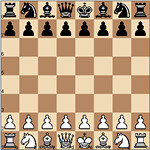Do you want to get the most out of your life? If your answer is yes, then living a lifestyle of value is essential.
I realize this truth recently through my blogging. Blogging gives me the pressure to create content and present something valuable to you, the reader. This pressure forces me to continuously increase my own value. It eventually brought me to the idea of living a “lifestyle of value”, a lifestyle which maximizes the amount of value I accumulate over time.
 By living a lifestyle of value, I can provide value simply by sharing my life. Rather than doing special preparation or research, I can share what I already have. This way, blogging feels more natural and effortless, while at the same time makes I grow much faster. I’m still learning to do it, but living a lifestyle of value is my goal these days.
By living a lifestyle of value, I can provide value simply by sharing my life. Rather than doing special preparation or research, I can share what I already have. This way, blogging feels more natural and effortless, while at the same time makes I grow much faster. I’m still learning to do it, but living a lifestyle of value is my goal these days.
I believe it should also be your goal. It will make you much more valuable to others. Here are 6 tips to live a lifestyle of value:
1. Build the habit of reading
Reading is a very effective way to supply value into your life. By building a reading habit, you will always have fresh ideas and concepts that can later be shared to others.
If you already have reading habit, you should bring it to the next level. This is what I’m doing right now. Though I love reading, my reading rate is not as good as I want. The action I plan to take to improve it is allocating special block of time for reading.
2. Learn from every experience
We will get much more value if we extract lessons from our experiences. Use every experience as a learning opportunity to add value to your life. Having this mindset allows you to minimize unproductive times since you make every moment valuable.
3. Learn from every person you meet
Similar to learning from all your experiences, you should also learn from all the people you meet. Everyone is our superior in some areas, so find those areas and learn as much as possible from him or her.
4. Live the lessons you learn
Learning new lessons is one thing, but applying them is another thing. It won’t do you good if you just learn a lot of new ideas without putting them into practice. The truth is, application often gives you much more value than just learning. You will discover a lot of new things you didn’t realize before.
Of course, this is easier said than done. Sometimes I even fail to apply the ideas I wrote on this blog. But application is something we should pay special attention to.
5. Think 80/20
To maximize the value you get in your life, you should apply the 80/20 rule: 80% of the effects come from 20% of the causes. We should then focus our effort on those 20% causes. This rule can be applied to all the points I wrote above. Let’s see some examples for each point:
- Reading
Different books give you different value. So choose the top 20% books that give you 80% of the value. Then, for each book, find the top 20% parts and spend most of your time there. This idea can also be applied to articles. - Experience
Whenever possible, put yourself in the top 20% experiences. For instance, let’s say you have six commitments right now and two of them provide the most value. The 80/20 rule says that you should focus more on those two commitments and reduce or cancel the rest. - People
Choose carefully the people you meet. While we can’t always choose with whom we meet, we can choose the people we spend most of our time with. Make sure that you spend most of your time with the winners of life, the 20% people that can give you 80% of the value. - Application
There are so many good ideas out there, but we can’t apply all of them at once. If we try to do that, chance is we will fail. So start with a few things that will make the most difference in your life. Ask yourself: of all the ideas you find, which one will make the most difference? Then focus on applying only that one idea. Later, after you apply it well, you can ask the question again and start working on another idea.
6. Share what you have
We will receive more when we give. So, if you want to get more value, share the value you have to others. For me blogging is one way to do that. I can attest that by sharing what I learn through blogging, I myself receive much more. Sharing the value you get is an indispensable part of living a lifestyle of value.








 9:12 PM
9:12 PM
 Naresh Kumar
Naresh Kumar

 But how can we get high-quality ideas? As it turns out, a great way to get high-quality ideas is to have a lot of ideas.
But how can we get high-quality ideas? As it turns out, a great way to get high-quality ideas is to have a lot of ideas.  Here I’d like to share 17 tips to become a true friend. It may take years to learn to apply them but they are essential to boost your relationships.
Here I’d like to share 17 tips to become a true friend. It may take years to learn to apply them but they are essential to boost your relationships.

 Though it’s not easy, it’s important to stay positive in negative situations. Beat the negative situations by staying positive. Here are 15 tips on how to do it; pick the ones that work for you:
Though it’s not easy, it’s important to stay positive in negative situations. Beat the negative situations by staying positive. Here are 15 tips on how to do it; pick the ones that work for you: The question is: how do you motivate yourself? Here are several tips I’ve found to be effective to build self motivation:
The question is: how do you motivate yourself? Here are several tips I’ve found to be effective to build self motivation: What is the secret? The secret is brain workout. They exercise their brain continuously and that makes their minds sharp.
What is the secret? The secret is brain workout. They exercise their brain continuously and that makes their minds sharp. Sudoku is a logic-based number placement puzzle. The objective is to fill a 9×9 grid so that each column, each row, and each of the nine 3×3 boxes (also called blocks or regions) contains the digits from 1 to 9, only one time each (that is, exclusively). The puzzle setter provides a partially completed grid. (
Sudoku is a logic-based number placement puzzle. The objective is to fill a 9×9 grid so that each column, each row, and each of the nine 3×3 boxes (also called blocks or regions) contains the digits from 1 to 9, only one time each (that is, exclusively). The puzzle setter provides a partially completed grid. ( Chess is played on a square chequered chessboard with 64 squares arranged in an eight-by-eight square. At the start, each player (one controlling the white pieces, the other controlling the black pieces) controls sixteen pieces: one king, one queen, two rooks, two knights, two bishops, and eight pawns. The object of the game is to checkmate the opponent’s king, whereby the king is under immediate attack (in “check”) and there is no way to remove it from attack on the next move. (
Chess is played on a square chequered chessboard with 64 squares arranged in an eight-by-eight square. At the start, each player (one controlling the white pieces, the other controlling the black pieces) controls sixteen pieces: one king, one queen, two rooks, two knights, two bishops, and eight pawns. The object of the game is to checkmate the opponent’s king, whereby the king is under immediate attack (in “check”) and there is no way to remove it from attack on the next move. ( Contract bridge, usually known simply as bridge, is a trick-taking card game of skill and chance. It is played by four players who form two partnerships; the partners sit opposite each other at a table. The game consists of the auction (often called bidding) and play, after which the hand is scored. (
Contract bridge, usually known simply as bridge, is a trick-taking card game of skill and chance. It is played by four players who form two partnerships; the partners sit opposite each other at a table. The game consists of the auction (often called bidding) and play, after which the hand is scored. ( A crossword is a word
A crossword is a word  Go is played by two players alternately placing black and white stones on the vacant intersections of a line grid. The objective of the game is to control a larger part of the board than the opponent. (
Go is played by two players alternately placing black and white stones on the vacant intersections of a line grid. The objective of the game is to control a larger part of the board than the opponent. ( Checkers is a form of the
Checkers is a form of the  Reversi are names for a board game which involves play by two parties on an eight-by-eight square grid with pieces that have two distinct sides. The object of the game is to make your pieces constitute a majority of the pieces on the board at the end of the game, by turning over as many of your opponent’s pieces as possible. (
Reversi are names for a board game which involves play by two parties on an eight-by-eight square grid with pieces that have two distinct sides. The object of the game is to make your pieces constitute a majority of the pieces on the board at the end of the game, by turning over as many of your opponent’s pieces as possible. ( Connect Four is a two-player board game in which the players take turns in dropping alternating colored discs into a seven-column, six-row vertically-suspended grid. The object of the game is to connect four singly-colored discs in a row — vertically, horizontally, or diagonally — before your opponent can do likewise. (
Connect Four is a two-player board game in which the players take turns in dropping alternating colored discs into a seven-column, six-row vertically-suspended grid. The object of the game is to connect four singly-colored discs in a row — vertically, horizontally, or diagonally — before your opponent can do likewise. ( Chinese checkers is a board game that can be played by two to six people. The objective of the game is to place one’s pieces in the corner opposite their starting position of a pitted 6-pointed star by single moves or jumps over other pieces. (
Chinese checkers is a board game that can be played by two to six people. The objective of the game is to place one’s pieces in the corner opposite their starting position of a pitted 6-pointed star by single moves or jumps over other pieces. ( Mastermind is a simple code-breaking board game for two players (
Mastermind is a simple code-breaking board game for two players ( I’m not saying that I know everything about changing life. I’m still learning myself. But here I’d like to share with you what I have learned so far.
I’m not saying that I know everything about changing life. I’m still learning myself. But here I’d like to share with you what I have learned so far.